Start a digital adventure with a web development business set up for success. We focus on specific industries, prioritize mobile-friendly approaches, and use the latest technologies to create custom solutions for your online presence. Stay ahead in the digital world with innovation at the heart of what we do.
1: E-commerce Website Development
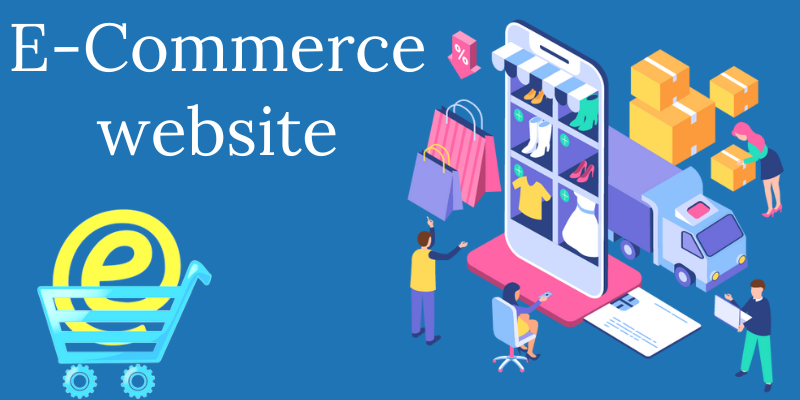
Ideas:
In the successful digital marketplace, developing specialized e-commerce websites for niche markets or unique product categories can be a profitable attempt. Customize websites to enhance user experience, implement secure payment gateways, and combine inventory management systems.
The potential of this idea:
The potential is high as businesses continue to shift online. E-commerce sales are expected to grow exponentially, providing a constant demand for customized and efficient websites.
Estimate the cost to start this business:
| Expense Category | Estimated Cost ($) |
| Technology and Software | 5,000 – 8,000 |
| Marketing and Advertising | 3,000 – 5,000 |
| Legal and Licensing | 1,500 – 2,500 |
| Personnel and Salaries | 10,000 – 15,000 |
| Miscellaneous | 2,000 – 3,000 |
| Total | $21,500 – $33,500 |
Key Risks:
- Rapid technological changes affecting website relevancy.
- Competition from established e-commerce development firms.
Examples of already running businesses:
- Shopify Experts
- Magento Development Services
Steps to start this business:
- Acquire in-depth knowledge of e-commerce platforms.
- Develop a portfolio of sample projects.
- Establish partnerships with payment openings and suppliers.
- Create a robust marketing strategy.
Success Ratio:
High, given the growing e-commerce trend.
Estimated Time to Success:
6-12 months, depending on market penetration.
Requirements to Start:
- Proficiency in web development languages (HTML, CSS, JavaScript).
- Understanding of e-commerce platforms (Shopify, WooCommerce).
- Marketing and networking skills.
Pro Key Tips:
- Stay updated with e-commerce trends, and continuously refine your skills to offer cutting-edge solutions.
- Build strong relationships with clients to encourage word-of-mouth reference.
2: Custom CMS Development for Niche Industries
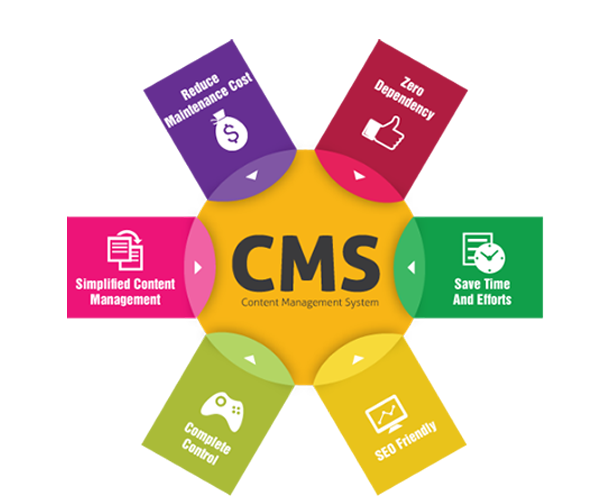
Ideas:
Develop custom Content Management Systems (CMS) tailored for specific industries like healthcare, finance, or education. These CMS solutions should address industry-specific needs, compliance standards, and security requirements.
The potential of this idea:
Industries require specialized CMS solutions due to unique data management needs. There’s a significant market for custom CMS solutions that offer efficiency and compliance.
Estimate the cost to start this business:
| Expense Category | Estimated Cost ($) |
| Research and Development | 8,000 – 12,000 |
| Marketing and Promotion | 4,000 – 6,000 |
| Legal and Compliance | 2,000 – 3,000 |
| Personnel and Salaries | 12,000 – 18,000 |
| Miscellaneous | 3,000 – 5,000 |
| Total | $29,000 – $44,000 |
Key Risks:
- Rapid changes in industry standards.
- Initial challenges in establishing credibility.
Examples of already running businesses:
- Sitecore
- Kentico CMS
Steps to start this business:
- Identify industry-specific needs for CMS.
- Develop a prototype for a target industry.
- Establish partnerships with industry influencers.
- Attend industry conferences and events.
Success Ratio:
Moderate to high, depending on the industry’s demand for specialized CMS solutions.
Estimated Time to Success:
12-18 months, considering industry acceptance timelines.
Requirements to Start:
- Expertise in CMS development.
- Industry-specific knowledge.
- Networking skills for industry partnerships.
Pro Key Tips:
- Maintain constant communication with industry professionals to adapt your CMS to evolving needs.
- Compliance and security are paramount in niche industries, so stay updated with regulations.
3: Website Security and Performance Optimization Services
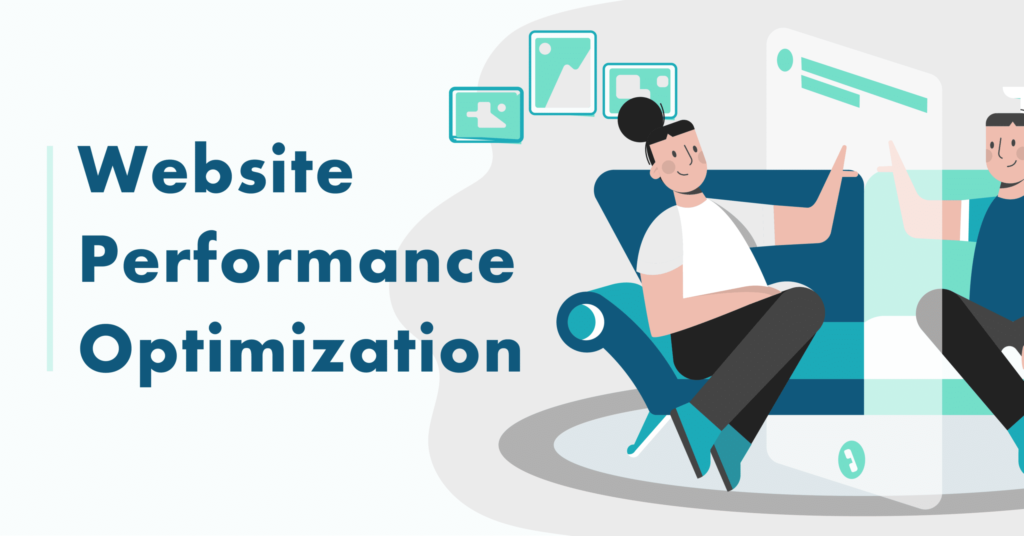
Ideas:
Offer specialized services focusing on improving website security and performance. This includes conducting security audits, implementing SSL certificates, optimizing website speed, and providing ongoing maintenance.
The potential of this idea:
With the increasing number of online threats and the emphasis on user experience, businesses are willing to invest in robust website security and optimal performance.
Estimate the cost to start this business:
| Expense Category | Estimated Cost ($) |
| Technology and Tools | 6,000 – 10,000 |
| Marketing and Outreach | 4,000 – 6,000 |
| Legal and Insurance | 2,500 – 3,500 |
| Personnel and Salaries | 15,000 – 20,000 |
| Miscellaneous | 3,000 – 5,000 |
| Total | $30,500 – $45,500 |
Key Risks:
- Developing nature of cybersecurity threats.
- Initial challenges in building trust.
Examples of already running businesses:
- Sucuri
- Cloudflare
Steps to start this business:
- Acquire certifications in web security.
- Develop standardized security and performance audit procedures.
- Establish partnerships with web hosting providers.
- Initiate targeted marketing campaigns.
Success Ratio:
High, given the increasing importance of website security.
Estimated Time to Success:
6-12 months, considering the time to build trust and gain clientele.
Requirements to Start:
- Expertise in website security.
- Familiarity with performance optimization techniques.
- Strong marketing and networking skills.
Pro Key Tips:
- Invest in continuous learning to stay ahead of cybersecurity trends. Offer personalized solutions based on each client’s unique needs.
- Regularly update clients on the latest security threats and how your services provide protection.
4: Virtual Events Platform Development

Ideas:
Create a platform that specializes in developing virtual events solutions. This includes features like virtual exhibition halls, interactive networking spaces, and live streaming capabilities. As the demand for virtual events continues to rise, businesses and organizations are searching for customizable, user-friendly platforms.
The potential of this idea:
The potential is high, considering the increasing preference for virtual events. This extends to conferences, trade shows, and other large-scale gatherings.
Estimate the cost to start this business:
| Expense Category | Estimated Cost ($) |
| Platform Development | 15,000 – 20,000 |
| Marketing and Promotion | 5,000 – 8,000 |
| Legal and Compliance | 3,000 – 4,000 |
| Personnel and Salaries | 18,000 – 25,000 |
| Miscellaneous | 4,000 – 6,000 |
| Total | $45,000 – $63,000 |
Key Risks:
- Intense competition in the virtual events platform space.
- The need for constant updates to adapt to evolving event trends.
Examples of already running businesses:
- Hopin
- Brella
Steps to start this business:
- Research and understand the specific needs of virtual event organizers.
- Develop a scalable and flexible platform.
- Build partnerships with event planning agencies and industry influencers.
- Begin targeted marketing campaigns highlighting unique features.
Success Ratio:
Moderate to high, contingent on delivering a user-friendly and feature-rich platform.
Estimated Time to Success:
12-18 months, considering the time to gain market traction.
Requirements to Start:
- Proficiency in virtual event technologies.
- Knowledge of event planning and management.
- Strong networking and marketing skills.
Pro Key Tips:
- Stay agile and include feedback from event organizers to enhance your platform continuously.
- Focus on creating immersive and engaging virtual experiences to stand out in the competitive market.
5: Real Estate Website Development for Property Management
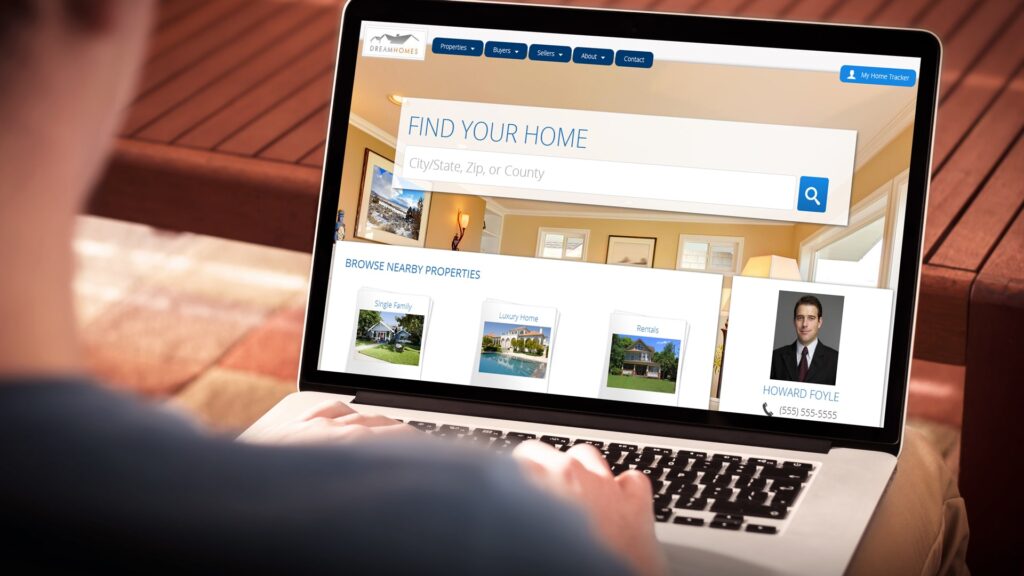
Ideas:
Develop websites catering specifically to real estate professionals and property managers. Include features such as property listings, virtual tours, and integrated management tools. The real estate industry is always in need of powerful online platforms to showcase properties and simplify operations.
The potential of this idea:
High potential due to the constant demand for efficient property management solutions and the digitization of the real estate industry.
Estimate the cost to start this business:
| Expense Category | Estimated Cost ($) |
| Platform Development | 12,000 – 15,000 |
| Marketing and Promotion | 6,000 – 8,000 |
| Legal and Licensing | 2,500 – 3,500 |
| Personnel and Salaries | 15,000 – 20,000 |
| Miscellaneous | 3,000 – 5,000 |
| Total | $38,500 – $51,500 |
Key Risks:
- Adjusting to changing real estate regulations and practices.
- Gaining the trust of established real estate professionals.
Examples of already running businesses:
- Zillow
- Realtor.com
Steps to start this business:
- Develop a user-friendly platform with advanced search and visualization features.
- Collaborate with real estate agencies and professionals.
- Implement targeted marketing strategies within the real estate niche.
Success Ratio:
Moderate to high, considering the real estate industry’s reliance on digital platforms.
Estimated Time to Success:
12-24 months, considering the time needed to establish credibility and build a user base.
Requirements to Start:
- Proficiency in real estate technologies.
- Knowledge of property management processes.
- Strong networking and marketing skills.
Pro Key Tips:
- Regularly update your platform to accommodate industry changes. Establish partnerships with real estate agencies and professionals to boost your platform’s credibility.
- Highlight the security and privacy features of your platform to build trust.
6: Educational Technology (EdTech) Platform for Skill Development
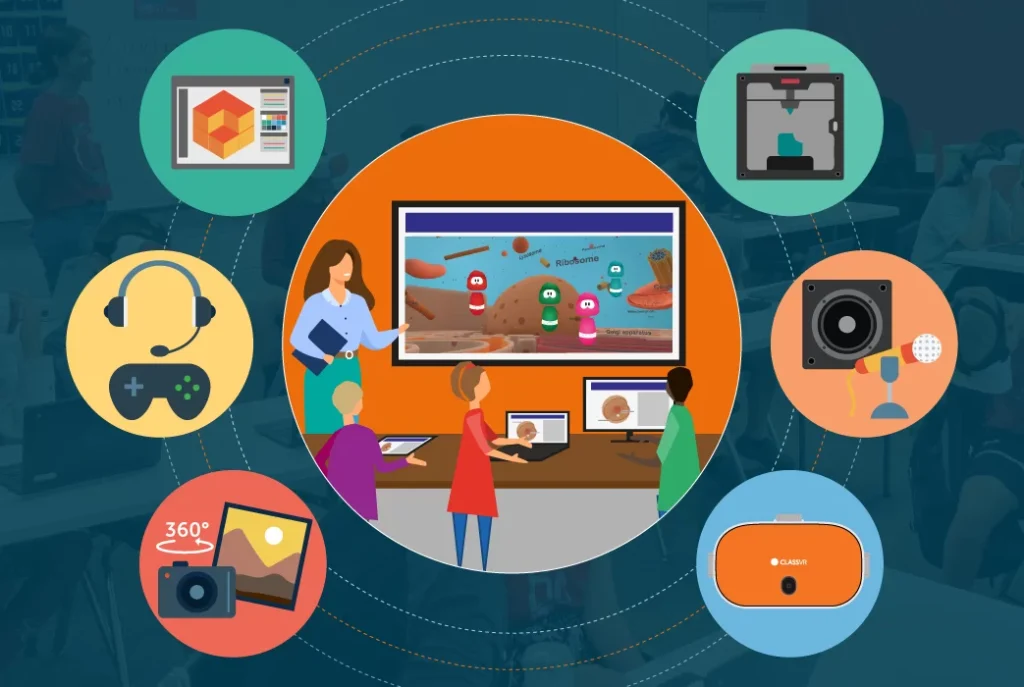
Ideas:
Create a comprehensive EdTech platform focusing on skill development. Offer a range of courses, interactive learning modules, and certifications. The platform should cater to both individual learners’ and collective training needs.
The potential of this idea:
The potential is immense as the demand for online learning and skill development continues to grow. Businesses and individuals are actively searching for platforms that provide high-quality, industry-relevant courses.
Estimate the cost to start this business:
| Expense Category | Estimated Cost ($) |
| Platform Development | 20,000 – 25,000 |
| Content Creation | 10,000 – 15,000 |
| Marketing and Promotion | 8,000 – 10,000 |
| Legal and Compliance | 3,000 – 4,000 |
| Personnel and Salaries | 20,000 – 25,000 |
| Miscellaneous | 5,000 – 7,000 |
| Total | $66,000 – $86,000 |
Key Risks:
- Ensuring the courses remain relevant to industry needs.
- Building trust among learners and corporate clients.
Examples of already running businesses:
- Udemy
- Coursera
Steps to start this business:
- Identify high-demand skill areas.
- Develop partnerships with industry experts for course creation.
- Implement interactive learning features.
- Utilize targeted marketing strategies to reach individual learners and corporate clients.
Success Ratio:
Moderate to high, depending on the quality and relevance of the courses offered.
Estimated Time to Success:
18-24 months, considering the time needed to build a diverse course catalog and gain recognition.
Requirements to Start:
- Knowledge of educational technologies and online learning platforms.
- Connections with industry experts for course creation.
- Strong marketing and networking skills.
Pro Key Tips:
- Frequently update course content to align with industry trends. Seek feedback from learners and continually enhance the platform’s user experience.
- Collaborate with businesses for corporate training programs to diversify revenue streams.
7: Local Business Website Enhancement
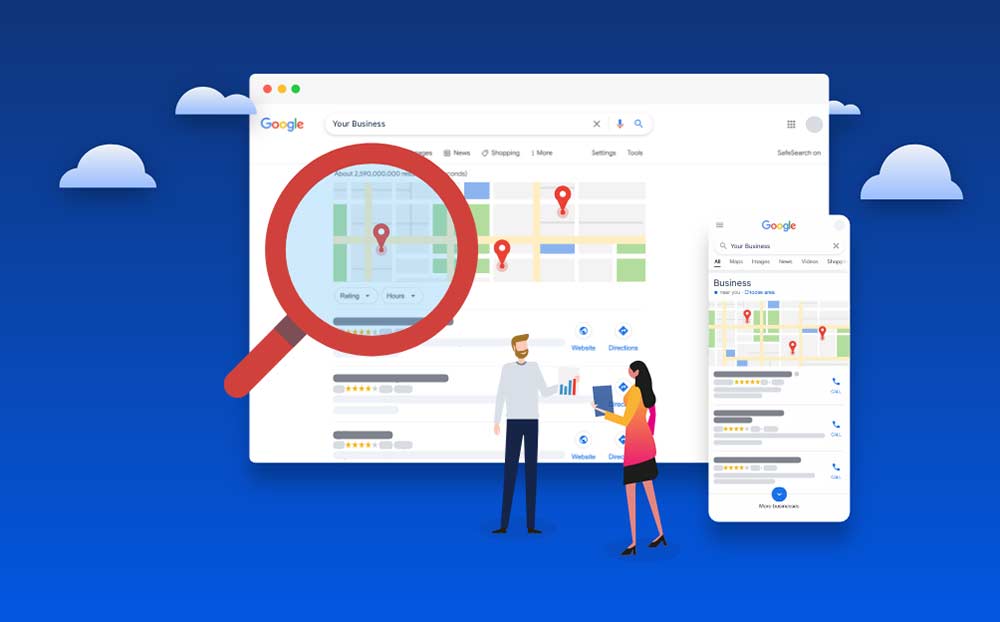
Ideas:
Focus on providing affordable and customized website development services for local businesses. Offer features such as online booking, contactless payments, and local SEO optimization. Underline the importance of an online presence for small businesses in attracting local customers.
The potential of this idea:
High potential, as many local businesses still lack effective online platforms. The demand for digital solutions is increasing, and small businesses are actively seeking cost-effective options.
Estimate the cost to start this business:
| Expense Category | Estimated Cost ($) |
| Technology and Tools | 3,000 – 5,000 |
| Marketing and Outreach | 4,000 – 6,000 |
| Legal and Licensing | 1,500 – 2,500 |
| Personnel (Freelancers) | 8,000 – 12,000 |
| Miscellaneous | 2,000 – 3,000 |
| Total | $18,500 – $28,500 |
Key Risks:
- Competition with DIY website builders.
- Sustaining profitability with lower-priced services.
Examples of already running businesses:
- Wix Local Business Websites
- Squarespace Local Business Plans
Steps to start this business:
- Identify the specific needs of local businesses in your target area.
- Create affordable website packages tailored for different industries.
- Establish partnerships with local business associations.
- Implement localized SEO strategies.
Success Ratio:
Moderate to high, contingent on effective local marketing and meeting the unique needs of local businesses.
Estimated Time to Success:
6-12 months, considering the time to build a client base.
Requirements to Start:
- Proficiency in web development.
- Understanding of local SEO.
- Effective communication and networking skills.
Pro Key Tips:
- Offer additional services like social media setup and basic digital marketing to enhance your value proposition.
- Advantage local testimonials and case studies to build trust within the community.
8: Progressive Web App (PWA) Development
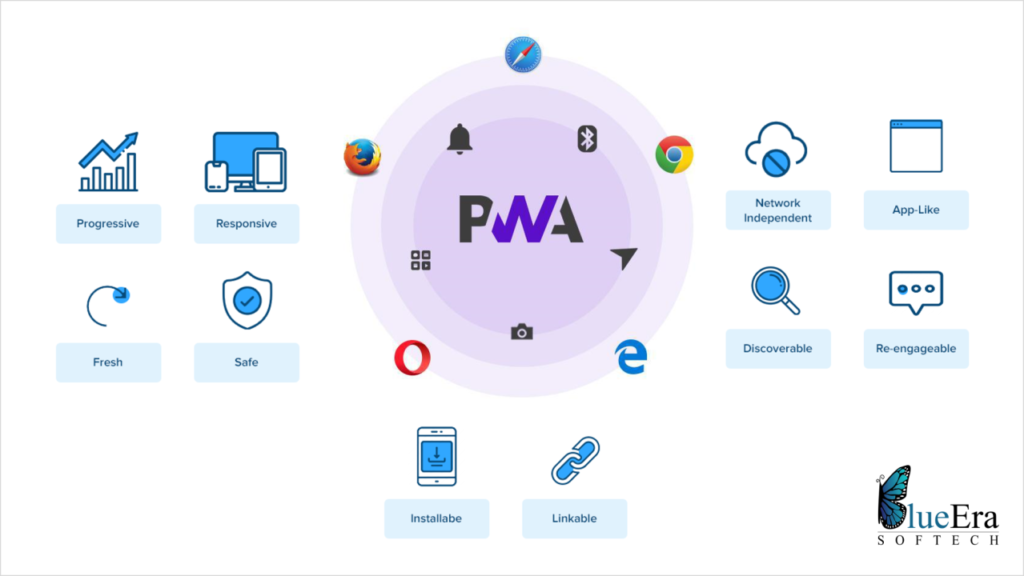
Ideas:
Specialize in developing Progressive Web Apps (PWAs) for businesses looking to provide a seamless and engaging mobile experience without the need for native apps. Highlight the advantages of PWAs, such as offline functionality and faster loading times.
The potential of this idea:
The potential is high, as more businesses recognize the benefits of PWAs in terms of user experience, accessibility, and cross-platform compatibility.
Estimate the cost to start this business:
| Expense Category | Estimated Cost ($) |
| Technology and Tools | 8,000 – 12,000 |
| Marketing and Promotion | 5,000 – 8,000 |
| Legal and Compliance | 2,000 – 3,000 |
| Personnel and Salaries | 15,000 – 20,000 |
| Miscellaneous | 3,000 – 5,000 |
| Total | $33,000 – $48,000 |
Key Risks:
- Convincing businesses of the advantages of PWAs over native apps.
- Staying updated with emerging PWA technologies.
Examples of already running businesses:
- Flipkart Lite
- Twitter Lite
Steps to start this business:
- Build expertise in PWA development.
- Showcase the advantages of PWAs to potential clients.
- Develop a portfolio highlighting successful PWA projects.
- Implement targeted marketing to businesses seeking mobile solutions.
Success Ratio:
Moderate to high, depending on educating businesses about PWA benefits.
Estimated Time to Success:
12-18 months, considering the time to build a reputation and client base.
Requirements to Start:
- Proficiency in PWA development.
- Strong marketing and communication skills.
- Awareness of mobile trends and user behaviors.
Pro Key Tips:
- Offer educational resources on your website about the advantages of PWAs. Collaborate with businesses that prioritize mobile user experience.
- Stay updated with changes in web technologies and browsers that support PWAs.
9: Accessibility-Focused Web Development
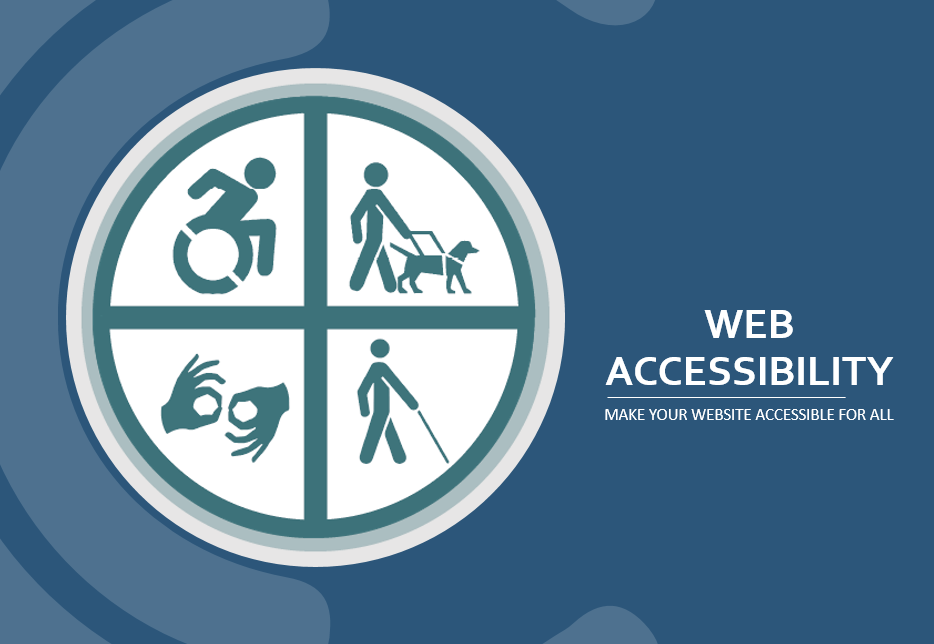
Ideas:
Specialize in creating websites that prioritize accessibility for individuals with disabilities. Offer services such as screen reader optimization, keyboard navigation, and compliance with accessibility standards (WCAG). Highlight the importance of inclusive design for businesses and organizations.
The potential of this idea:
The potential is high, as businesses are increasingly recognizing the importance of creating accessible digital experiences. Additionally, there is a growing emphasis on legal compliance with accessibility standards.
Estimate the cost to start this business:
| Expense Category | Estimated Cost ($) |
| Technology and Tools | 6,000 – 8,000 |
| Training and Certification | 4,000 – 6,000 |
| Marketing and Outreach | 5,000 – 7,000 |
| Legal and Compliance | 3,000 – 4,000 |
| Personnel and Salaries | 15,000 – 20,000 |
| Miscellaneous | 2,000 – 3,000 |
| Total | $35,000 – $48,000 |
Key Risks:
- Convincing businesses of the importance of accessibility.
- Staying updated with evolving accessibility standards.
Examples of already running businesses:
Accessible Web Design Agencies
Steps to start this business:
- Gain expertise in web accessibility standards (WCAG).
- Acquire relevant certifications.
- Develop a portfolio showcasing accessible website projects.
- Collaborate with advocacy groups and organizations promoting inclusivity.
Success Ratio:
Moderate to high, depending on effectively communicating the business value of accessibility.
Estimated Time to Success:
12-18 months, considering the time to build a reputation and establish partnerships.
Requirements to Start:
- Proficiency in accessible web design principles.
- Certification in web accessibility standards.
- Advocacy and networking skills.
Pro Key Tips:
- Educate clients on the legal and business benefits of accessible design. Actively engage with accessibility communities and stay updated on best practices.
- Offer training sessions for client teams to maintain ongoing accessibility standards.
10: Virtual Reality (VR) Web Experiences

Ideas:
Fall into the absorbing world of virtual reality by developing web experiences that advantage of VR technology. Offer businesses and individuals the opportunity to create virtual showrooms, product demonstrations, or interactive storytelling on their websites, providing a cutting-edge and memorable online presence.
The potential of this idea:
The potential is significant, especially with the increasing adoption of VR technology. Businesses seeking innovative ways to engage users online can benefit from unique and absorptive VR web experiences.
Estimate the cost to start this business:
| Expense Category | Estimated Cost ($) |
| VR Development Tools | 10,000 – 15,000 |
| Marketing and Promotion | 6,000 – 8,000 |
| Legal and Compliance | 2,000 – 3,000 |
| Personnel and Salaries | 20,000 – 25,000 |
| VR Equipment | 8,000 – 10,000 |
| Miscellaneous | 4,000 – 6,000 |
| Total | $50,000 – $67,000 |
Key Risks:
- Niche market, requiring education on the benefits of VR web experiences.
- Rapid advancements in VR technology may necessitate continuous learning.
Examples of already running businesses:
- A-Frame
- Sketchfab (3D and VR content)
Steps to start this business:
- Acquire expertise in VR web development.
- Develop a portfolio of VR web experiences.
- Collaborate with marketing agencies to showcase VR’s potential.
- Attend VR and technology conferences to stay updated.
Success Ratio:
Moderate to high, contingent on effectively communicating the value of VR in web experiences.
Estimated Time to Success:
12-24 months, considering the time needed to establish a reputation in the VR web development niche.
Requirements to Start:
- Proficiency in VR development languages (e.g., A-Frame, Three.js). Knowledge of VR hardware and software.
- Strong marketing and presentation skills.
Pro Key Tips:
- Stay on top of VR trends and regularly update your skills to include new features. Collaborate with VR headset manufacturers for potential partnerships.
- Create engaging demo experiences to showcase the possibilities of VR web development.




